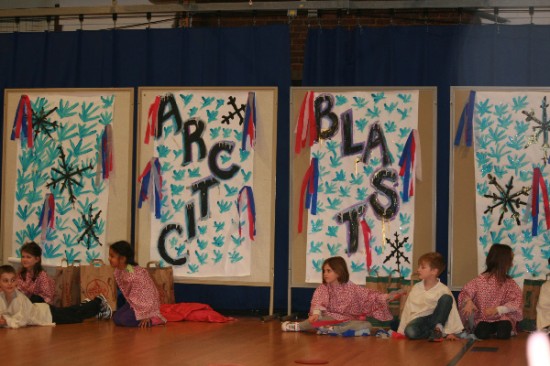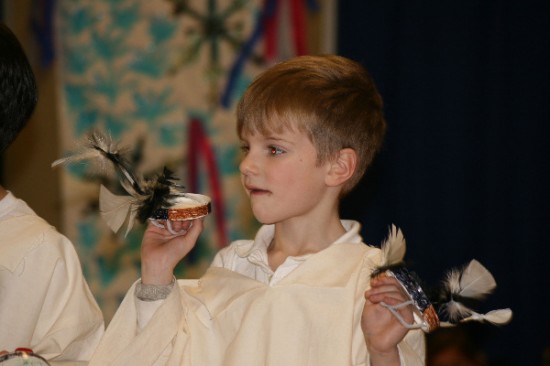Matt and I were talking about first impressions last week. We met 14 years ago, but the first things we thought of each other – and of other people we’ve met since – remain vivid. We talked about the major categories of impressions, the things that carry weight when you are first getting to know someone.
“Your friends,” he started, with a smile. “Well, your friends were, from the very first, awesome.” I’ve written before about how even if he got rid of me, I’m pretty sure Matt would insist on continuing to go to my college reunions. He loves those women almost as devoutly as I do (and with good reason).
“Yes, they are.”
“I think you can tell a lot – maybe the most of all – about someone by who their best friends are.”
And I agree with him. My closest friends are a small group of people for whom I feel fierce loyalty and untrammeled pride. I feel lucky every single time I think of this handful of people who have, for some mysterious reason, decided to bestow their love on me. Matt’s and my conversation got me thinking, again, about which friends have stuck with me through life’s unanticipated perambulations, about how some grow nearer even as others ebb away.
There have been three fertile periods of friend-making in my life. The first was my childhood friends, my “family friends,”who really functioned more as siblings than anything else in my early life. These friends flanked me through those first important years, though the relationships were driven as much by our parents’ friendships as by anything individual to us. I am not in daily touch with any of those friend-siblings these days, but they remain close to me in the way of people who have shared formative life experiences. Like, perhaps, people who went through trench warfare together. I also had dear friends from my grade school (one of whom I saw last week and realized that Grace is about to be the age we were when we met – holy holy holy!).
The second was college. High school, fractured as it was between England and New Hampshire, was quite fraught for me. I had some good friends in London but we have dropped out of touch, proving to me that the weight of different cultures and the ocean was too heavy for the fragile bonds we shared. At boarding school I pulled into myself for a variety of reasons, and I remember those two years as some of the loneliest of my life. Yes, I had friends, and people with whom I shared the long cold days; one of my very best friends now I met there though it was really in college that our friendship blossomed into what it is now. But I spent a lot of time alone, too, running endless miles in the snowy woods, black trees silhouetted against gray sky, and writing essays and reading books in my tiny bedroom.
College changed all of that. I arrived at Princeton desperately lonely, full of insecurities and fears (yes, believe it, even more than now). I don’t think I had realized the extent to which those two years in New Hampshire saddened me. I was desperate for a place to call home, a group of friends into whose embrace I could relax. Oh, and how I found it. To this day, Princeton remains the place I was happiest. There was standard college drama, of course: sadness, frustration, embarassment, heartbreak. But oh, my friends. I was and am still surprised that such extraordinary women wanted to be my friends. Some of this was, of course, in reaction to the cold years at Exeter. For sure. But it mostly just my lonely heart gratefully opening to the warmth of Princeton, to the spring sky riotously full of magnolia blossoms, to orange tee shirts and mardi gras beads, to young women singing “oh what a night” at the top of their lungs at a dive Chinese restaurant.
Those four years were healing, and the friends I made there will always be the dearest of my life. Anne Patchett writes about how true friends are “native speakers,” and I find myself recalling how at Princeton we basically invented our own language. We were teased for abbreviating everything, and indeed, we did. Abbrevs, T and a P, TDF, the chalice, DTR … I could go on. Those of you who know what all of those things mean know who you are. And you speak my language.
And many of these college friendships have endured, grown thicker and stronger and more sustaining even as we move further away from Princeton. We have passed through early professional choices, graduate school, weddings, divorces, more weddings, babies. I’m not sure I can say it better than I did, in a letter addressed to these wonderful women, several years ago:
“There will be and are other incredibly special friends, but as a community you all are ground zero: yardstick and safe haven, the people who knew me when I was becoming who I am.”
The third rich period of friendship in my life was around pregnancy, delivery, and the transition into motherhood. This passage is so complex, the particular dilemmas and issues of life with a newborn so detailed and specific, that the people I shared it with have become dear friends. These friendships developed in the context of family and children, and the women I have grown close to in that fecund place full of abundant concerns and anxious questions are deeply special to me.
It strikes me that it is not an accident that our truest and most lasting friendships are forged during times of life transition; we are closest to those who have shared experiences that changed who we are. Whether it was childhood, college, or becoming mothers, this is true for me. There are other examples, individuals who have shared things with me that contributed indelibly to who I am. In this way, a very few other people have become a part of my own self, their voices permanently embedded into my private narrative.
There are a few sustaining threads in my life, people whose story I know will always run next to mine, friendships whose sturdy support I lean on routinely. And how fortunate I am that these people were impressive enough to my husband when he met them that he decided, too, to stick around.
Do you agree that people’s close friends are a significant indicator of who they are? Are there phases in your life that have yielded particularly close or lasting friendships? What did you think the first time you met your spouse?
(parts of this are reposted from September 2009)


